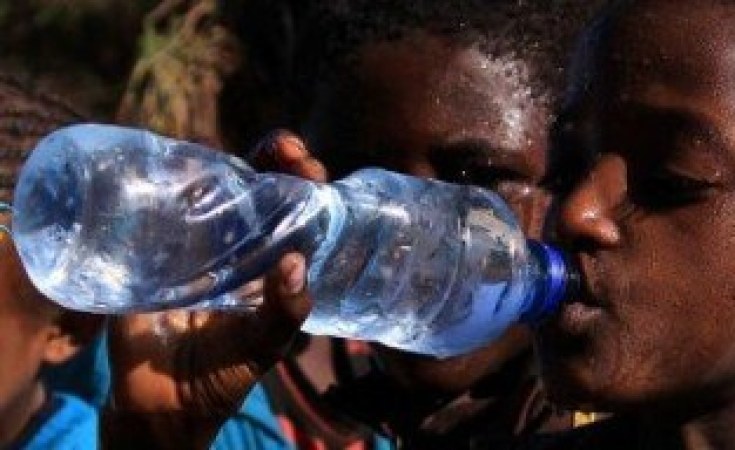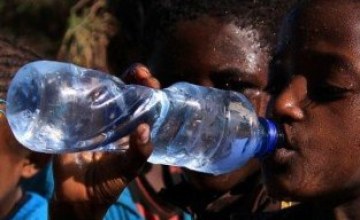Phase II of an African Development Bank-funded water program in Tunisia will improve water services for about 400,000 rural Tunisians. Approved by the Bank's Board of Directors on September 6, 2016, this program is designed to provide clean drinking water mostly to needy rural communities in about 20 prefectures.
"This program will improve the quality of life of about 400,000 people across rural Tunisia. Along with other AfDB-funded rural infrastructure projects such as electrification, roads, health and educational facilities, this program will boost economic growth and social development in Tunisia," said Mohamed El Azizi, Director of the Water and Sanitation Department of the AfDB.
Funding for the program is a combination of a loan of €123.7 million and a grant of €1 million. The grant is from the Rural Water Supply and Sanitation Initiative (RWSSI), one of the Bank's flagship initiatives in this sector.
Planned improvements in water supply systems expected from the implementation of this program are also expected to improve the quality of life of beneficiaries in terms of public health, hygiene, environment and economic development. More than 1,200 schools are also projected to be connected through the program, benefitting an estimated 130,000 students.
Other expected benefits of the program include:
Reducing the dropout rate in rural areas, particularly among girls;
Achieving the national target of providing water to 97 percent of Tunisians by 2025;
Reducing the incidence of waterborne diseases (in particular, Hepatitis A and typhoid fever), occurring primarily in rural areas with little or no access to clean water or adequate sanitation;
Improving the capacity of the Tunisia Government to develop and scale up a new monitoring and evaluation system. The Tunisian Government recently adopted a new M&E tool to monitor large public projects to address common weaknesses of development projects;
Support the Government in the implementation of its sustainability strategy for the management and operation of rural water supply systems.
This program builds on an earlier one designed to provide similar water and sanitation services to rural communities in Tunisia. Phase I started in 2012 and is about 90 percent complete. Completion is expected in 2017 and will benefit about 378,000 inhabitants, against 348,000 as originally projected.
As a first in Bank financed projects, all contracts under this program will be procured using Tunisia's procurement system. "The program will use national procurement system in its entirety, increasing the country's ownership and accountability in the processes," said Vinay Sharma, Director of the Procurement and Fiduciary Services Department of the AfDB. "The system has been evaluated rigorously using a globally accepted methodology and the Bank is satisfied that the processes are fair and transparent, the country has an acceptable monitoring and
complaint handling mechanism and that adequate competition will be possible. The Bank will also monitor the processes through independent audits. This approach is consistent with the new procurement framework of the Bank, approved in October 2015, that encourages an increased use of country procurement systems as long as the risks have been evaluated and mitigation measures put in place."
The AfDB is a leading provider of water and sanitation in Africa. The AfDB currently maintains an active portfolio of about 105 operations in the water and sanitation sector totaling about US $3.5 billion. The Bank financed it first water sanitation operation in 1968. Since then, it has approved 360 loans and grants in the Water Supply and Sanitation (WSS) sector, with a total financing volume of approximately US $7 billion.
The Water and Sanitation Department leads and coordinates water-sector activities and promotes integrated water resource management approaches across all Bank water supply and sanitation interventions. The Bank also host three critical initiatives on water and sanitation. The Rural Water Supply and Sanitation Initiative funds water sector projects and studies; the African Water Facility (AWF), for which the Bank is a trustee, provides support to the New Partnership for Africa's Development Water and Sanitation Program; and the Multi-Donor Water Partnership Program promotes effective regional and national water management policies and practices, and operationalizes the Integrated Water Resources Management (IWRM) Policy in the Bank's regional member countries (RMCs).



